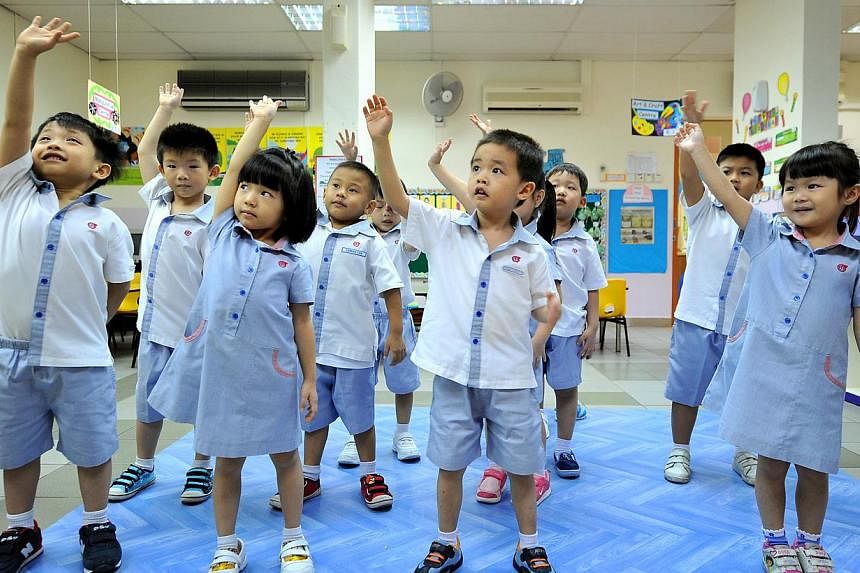Most parents tell their children not to speak in a jumble of English and Mandarin, fearing that it would confuse them and hinder their learning of the language they are weaker in.
However, bilingualism expert Yow Wei Quin disagrees.
The Singapore University of Technology and Design assistant professor, who heads its language and social cognition lab, conducted a study on pre-schoolers and found that code-switching - when a speaker alternates between two or more languages in a sentence or conversation - could improve their Mandarin.
A total of 51 pre-schoolers took part in her study, believed to be the first of its kind in Singapore. Last year, a team of researchers went to two pre-schools and recorded the conversations of the children aged five to six. They followed them throughout their activities, from lessons to group projects to meals and play time, for 10 days.
The children's strengths in English and Mandarin were measured in three ways, with scores for both languages.
The first two tracked the number of different words they used in their sentences, and how long their sentences were. These show how well they expressed themselves using different words, and how complex their sentences were, said Prof Yow.
The third method was a test called the Peabody Picture Vocabulary Test that assessed their ability to match words to pictures.
The study's results showed that on average children did not switch between languages that often. There was also no proof that code-switching had a negative impact on the children's English-language ability, she added. But the data showed that those who code-switched more had higher Mandarin scores. "This means code-switching is not bad," Prof Yow noted. "In fact, it might help children to express themselves in a weaker language."
More young children are growing up in English-speaking families where Mandarin is hardly used. Those in her study were exposed to English 60 per cent of the time at home, and Mandarin and dialects the rest of the time.
Prof Yow suggested: "Code-switching could be used as a step to improve children's Mandarin. For instance, parents and teachers can fill in their language gaps by following up with full sentences."
Madam Renee Lim, a mother of three girls aged two, seven and nine, said she usually reminds them to speak in full sentences in one language.
"But perhaps it's true that allowing them to be flexible could encourage them to speak more in Mandarin," said the 41-year-old who works in a bank. Her family converses mostly in English.
Prof Yow's research will be presented at the Mother Tongue Languages Symposium this Saturday at the Suntec Singapore Exhibition and Convention Centre.The event is organised by the Ministry of Education and the Mother Tongue Language Learning and Promotion Committees and aims to promote bilingualism.
"Speaking a little bit of Mandarin is better than not speaking it at all," Prof Yow said. "Otherwise, children may avoid speaking the language altogether."


